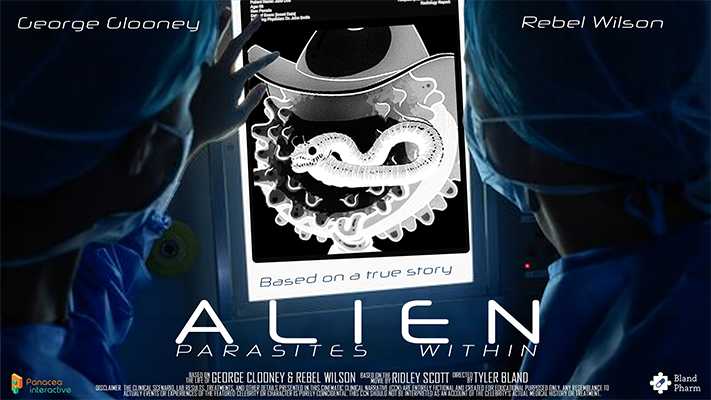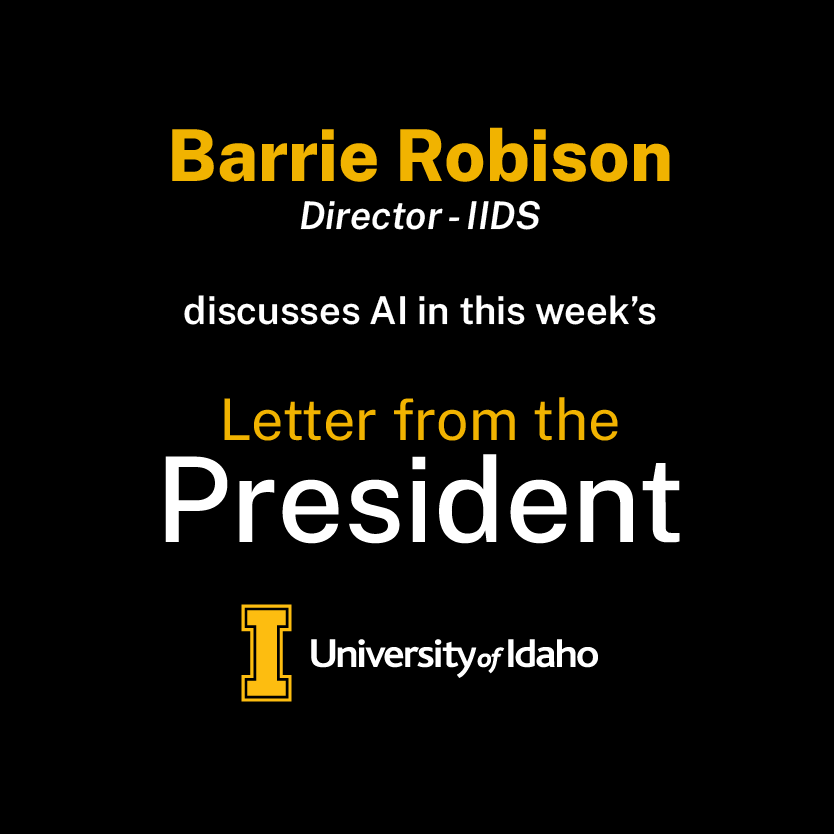Who We Are
The Institute for Interdisciplinary Data Sciences (IIDS) is a research institute within the Office of Research and Economic Development (ORED) at the University of Idaho. The mission of IIDS is to empower researchers to fully harness the potential of the data revolution by provisioning and administering critical university research infrastructure related to genomics, bioinformatics, research computing, and data science. IIDS houses three service units including Research Computing and Data Services (RCDS), the Genomics and Bioinformatics Resources Core (GBRC), and the Initiative for Bioinformatics and Evolutionary Studies (IBEST). IIDS is a vibrant home for interdisciplinary research between student, postdoc, and faculty participants. IIDS participants can access support for proposal development and grants management, expertise, infrastructure, training, and professional development activities.
Questions?News

IIDS Generative AI Fellow, Tyler Bland, Publishes in MDPI AI
Medical students face a tough challenge: learning an overwhelming amount of complex information quickly. To help make one of the most difficult topics—antiparasitic medications—more engaging and easier to remember, Dr. Tyler Bland and his team created a new way to teach: short, cinematic, educational films powered by artificial intelligence. These Cinematic Clinical Narratives (CCNs) use storytelling, animated visuals, catchy songs, and humor to teach about parasites and the drugs that treat them.

Barrie Robison featured in the U of I's letter from the President
Barrie Robison, director of the Institute for Interdisciplinary Data Sciences (IIDS), discusses the potential of AI and current AI projects happening here at the University of Idaho in the latest letter from the President.

Barrie Robison on the Vandal Theory Podcast
Barrie Robison, Professor with the Department of Biological Sciences and director of the Institute for Interdisciplinary Data Sciences (IIDS), is featured on the newest episode of the Vandal Theory podcast. Season 9, Episode 5: Incorporating artificial intelligence into universities.
CORE FACILITIES

Genomics Resources Core
The Genomics & Bioinformatics Resources Core (GBRC) provides researchers from the University of Idaho access to technology, experience, and expertise in genomics research. Applications of these technologies are commonly used in biomedical research, but the interdisciplinary focus of the University of Idaho results in a wide range of fields that can benefit from the core, including microbial studies, agricultural studies, forest management, and animal science. The Genomics Resources core is also available to researchers that are external to the University of Idaho.
Research Computing and Data Services
The Research Computing and Data Services serves as the computational backbone for research at the University of Idaho. It provides investigators with state of the art high performance computing and large data storage capacity for use in analyzing and managing large volumes of research data. Users of the core run jobs that may use hundreds of processors in parallel or large memory allocations and may run require weeks to complete. The RCDS data center is explicitly designed to manage the complex computational and storage requirements for UI researchers very high data reliability and availability. The core contains an advanced mix of high performance computing clusters, powerful servers and reliable data storage components as well as the knowledge and technical skills required to compress years of analysis into days.
RCDS provides research data management and computing support for UI researchers and their regional, national, and international collaborators. Support for research data management, curation, and dynamic access keeps our researchers at the cutting-edge of science and increases and enhances our institution's competitiveness for external research grants. Quality data and metadata developed in research projects and curated by NKN is a valuable, long-term asset for a public land-grant University and provides a foundation and source upon which to develop and build new research and science









